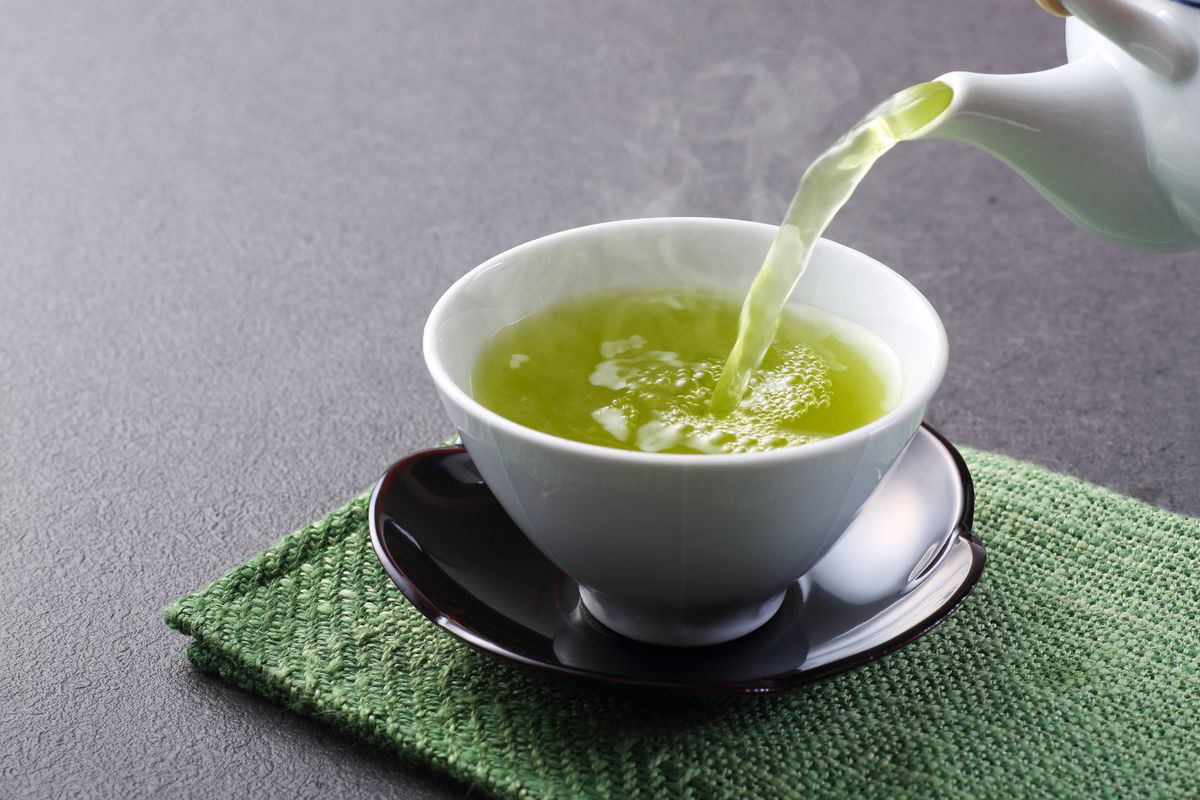What's your favorite color tea? If you like it green, you're drinking pretty close to the gold standard for tea. Green tea is one of the less-processed types of tea (white is the least). And due to the fact that it's not processed much before it reaches your lips, green tea retains its valuable health benefits and its extremely high levels of antioxidants and beneficial polyphenols.
All teas come from the same plant (the
Camellia sinensis), but they're processed using different methods. For instance, green tea goes through a less vigorous process than black, whose leaves are not only withered, but then crushed, torn, circled or rolled. Green tea's leaves remain more intact, since they're gently steamed and handled with (more) care.
Ah, so that's why I've always heard that green tea is healthy, you might be thinking. While all teas are healthy, green is among the healthiest. And there are probably lots of benefits beyond the ones you may already know about—such as protection against certain types of cancers, like prostate, stomach and skin.
- Green tea improves mental alertness. This could be due to its caffeine content. (Yes, it contains caffeine—between 24 to 45 milligrams per 8-ounce cup.)
- Green tea may help control inflammatory bowel disease (two common types are Crohn's disease and ulcerative colitis) by reducing inflammation.
- Green tea can reduce risk of heart disease. In a study, those who drank at least five cups of green tea per day had a much lower risk of dying from cardiovascular disease than those who consumed less than one cup each day.
- Green tea may help lower your cholesterol. Those who consumed green tea—either as a drink or in capsule form—had reductions in their total LDL ("bad") cholesterol, another study found.
- Green tea may aid in weight loss. Although it may not be a significant amount, it can lead to a small loss in overweight and obese adults, according to studies.
- Green tea may one day be used as a treatment for skin disorders like psoriasis and dandruff, by helping to slow the growth of skin cells.
- CAGTE, a component of green tea, may protect against Alzheimer's disease. Another compound present in green tea, EGCG, holds promise in possible treatments for Alzheimer's.
- Green tea could help treat rheumatoid arthritis, says a new study appearing in the journal Arthritis and Rheumatology.
- Green tea, because of its catechins, may be effective in killing off bacteria and protecting against viruses, and lowering your risk of infection.
- Green tea may prevent bad breath by inhibiting the production of odor-causing gases.
- Green tea extract ointments have FDA approval to topically treat genital warts.
If you decide to start drinking green tea, or increase your consumption, remember this: Unsweetened green tea has zero calories. Watch out for bottled green teas, which are often sweetened with sugar or an artificial sweetener. According to research presented at the American Chemical Society, those bottled teas may not have as many polyphenols as a cup of brewed tea.
Read more:
The Health Benefits of Tea
How to Drink Green Tea for Weight Loss
Tea Time: An Easy Way to Improve Overall Health
Why Drink Tea?







